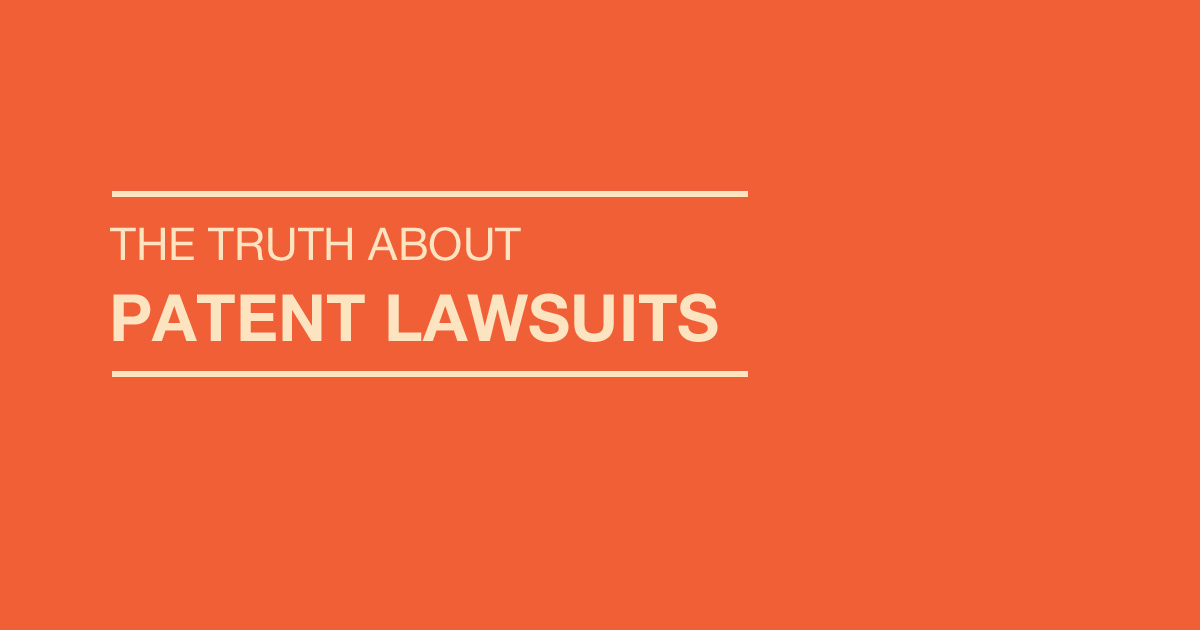The Truth About Patent Lawsuits

Save the Inventor and its allies are committed to protecting small inventors, innovators, and businesses in the United States against overbroad patent legislation that threatens to weaken the patent system.
Over the last few years, there has been a consistent narrative from anti-patent organizations and companies claiming that patent litigation is on the rise and that it’s weakening innovation in America.
It’s time to share the truth about patent lawsuits in the U.S.
False Claim: Patent Lawsuits Are on the Rise
Proponents of weaker patents want people to believe that patent lawsuits are rampant and swamping our economy. But the facts don’t back that up. The truth is that patent litigation rates have been steadily falling in the U.S. According to PWC’s latest analysis, patent litigation dropped by 9% in 2016, falling to its lowest level in more than 4 years. Using a different methodology, legal analytics company Lex Machina reported a 22% drop in 2016.
It is also important to note that much of the prior increase in patent litigation can be attributed to a provision in the 2011 America Invents Act that required patent holders to file separate suits for each case of infringement, instead of consolidating cases in a single suit. So, to a large extent, the increase in the number of suits filed never indicated an actual increase in litigation.
False Claim: “Patent Trolls” Engage in Legalized Extortion
It’s not cheap or easy to create something patent-worthy. By instilling a guaranteed property right on inventions, patents provide an important financial incentive for inventors and for the investors who finance their work. Once an inventor has a patent, it is their choice if they want to produce the product themselves, license the IP rights to a manufacturer or even sell the patent outright. All three options are legal and legitimate, and help contribute to our innovation economy by allowing new scientific and technological breakthroughs to come to market.
If a patent owner finds that a party is infringing on their intellectual property, it is entirely within their right to ask for what is owed to them or to file a lawsuit in order to ensure the infringement ends. Intellectual property is still property after all. And the theft of intellectual property is the same as the theft of any other property. Protecting what is yours does not make you a troll and it certainly isn’t extortion.
It must be noted that there are bad actors that take advantage of the patent system and engage in frivolous litigation. But these frivolous cases can be addressed with targeted legislation, such as the recently-introduced STRONGER Patents Act. Importantly, any new legislation should not impact the ability of legitimate patent holders to protect their patent rights.
False Claim: “Patent Trolls” Are Turning Their Focus to Small Businesses
United for Patent Reform, one of the leading anti-patent organizations, has been claiming that “in 2016, the majority of companies sued by patent trolls were small businesses.” They invoke the image of mom and pop shops on Main Street being harassed by endless legal attacks. But to come up with this misleading statistic, they have defined “small businesses” as companies with revenue of $100 million or less. By using this broad definition, they are clearly capturing companies that no one would consider a “small business.”
It is more likely that many of these companies being sued for infringement are members of supply chains or retailers that provide infringing components or knowingly profit from the sale of products with infringing IP.
Learn more about how our patent system has been under attack by reading our recent blog, Why the U.S. Patent System is Losing its Luster.
Receive important updates on the fight for patent rights by signing up for our email newsletter here.
